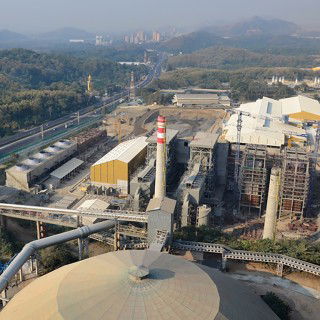Mineral carbonation is being explored within the cement and concrete industry to chemically convert CO2 emissions into stable minerals leading to permanent CO2 storage within cementitious materials. Teesside University, UK, is collaborating with nine other industrial partners to decarbonise the cement industry through innovative technology that supports the industrial-scale production of carbon-neutral geopolymer cement through the use of historical industrial by-products and wastes. By Professor David Hughes MIMMM, Dr Sina Rezaei-Gomari and Dr Kamal Elyasi-Gomari, Teesside University, UK.
Global warming remains one of the most critical environmental challenges that we face today, and it is our collective responsibility to find impactful solutions. CO2 is a key greenhouse gas that is responsible for global warming. As a result of human activity, over 40bnta of CO2 are produced. This will lead us to invent new technology to radically reduce CO2 emissions from heavy industries such as the cement sector.
As construction demand for cement and concrete continues to expand globally, the industry must urgently address its impact on greenhouse gas (GHG) emissions by adopting environmentally sustainable alternatives.
